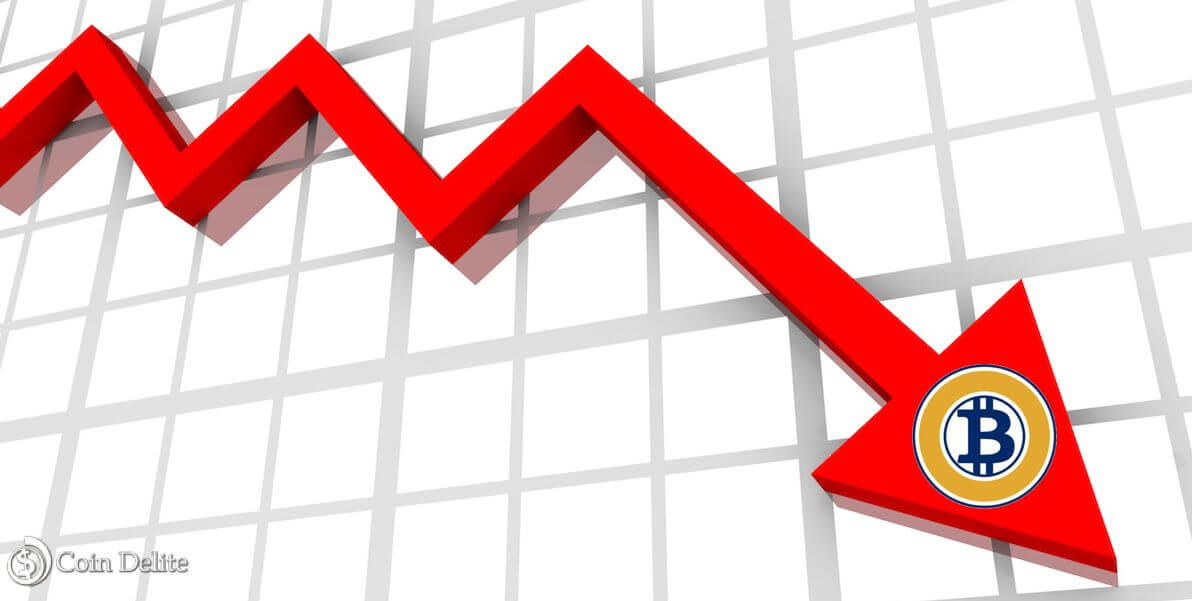
Bitcoin has lost over a fifth of its value in under a week amid regulatory concerns. Bitcoin, dipped to as low as $8,500 on Friday’s trading, marking another wave of high volatility in the leading cryptocurrency.
Leading analysts have now labelled investment in bitcoin “high risk” amid the crash. A unit was trading as high as $11, 500 on Monday, March 5 before starting a steady decline.

On Wednesday, news started trickling in of a Japanese trustee for the now defunct Mt. Gox offloading over $400 million worth of Bitcoin and Bitcoin Cash in the last to pay off creditors. Nobuaki Kobayashi, a lawyer and trustee made the revelations during a creditors meeting saying he had sought authorization from court. He is planning a future sale of the remaining 166,344.35 BTC in reserves.
The exchange brought to its knees from a massive hack. 850,000 bitcoins were lost in the 2014 hack but about 200,000 have since been recovered, according to the exchange.
The downward trend happening just a month after a spectacular crash in early February which saw prices dipping below $6000 entrenches bitcoin as a highly volatile asset. This from a peak of nearly $20,000 at the end of 2017. Prices have however been rising more steadily since the February crash albeit at a much slower pace.
Regulatory Scrutiny
The current slump may be seen in light of the current regulatory scrutiny in the US and the Asia Pacific. In the US, a number of subpoenas were issued to exchanges as the government seeks to have more control over cryptocurrency exchanges. The Securities & Exchange Commissions (SEC) has concerns cryptocurrency exchanges were being presented as regulated under SEC when they are not.

In Japan, the Financial Services agency suspended two exchanges Bitstation and FSHO citing inadequate controls and security measures. Exchanges like Coincheck have lost substantive customer funds after being hacked. $500 million worth of customer deposits were lost. It has since moved the assets to cold storage, it says.
Bitstation and FSHO will now remain suspended until April 7.
Penalties
Six other exchanges were also penalized for various violations. Except for withdrawals, most other operations will remain suspended during this period.
Those penalized include GMO Coin and Coincheck for not putting enough systems to control terrorism financing and money laundering.
Coincheck CEO Koichiro Wada admitted Coincheck’s systems were not keeping up with its expansion. The exchange now has until March 22 to submit a report on what it was doing about the issue.
GMO Coin was reprimanded for not taking steps to establish the root cause of frequent glitches.
Japan is the first country to actively regulate cryptocurrencies.
In the case of Bit Station, a senior official was found to have taken deposits for personal use. This, the regulator said was an indicator of inadequate customer protection.
FSHO was found to have not put in place the necessary measures to stop money laundering.
Meanwhile altcoins, have also been taking a beating. For most of the alternative cryptocurrencies, losses range anywhere from 10% to 20% over the last 24 hours. Price movements in alternative cryptocurrencies are very much tied to bitcoin.
Ripple Prospects

Meanwhile, Ripple could topple bitcoin from the top spot if recent trends are anything to go by. The cryptocurrency built for the financial industry has been enjoying an unprecedented run after dozens of banks tested it for payment transfers. If Ripple shows willingness to work with regulators, it could see the coin explode in value. Regulation or lack of it has been shown to be the major hindrance facing the growth of the industry.
Ripple employs an entirely different technology which allows for much needed scalability, micro-transactions and low fees. Bitcoin is largely limited on these three aspects.

